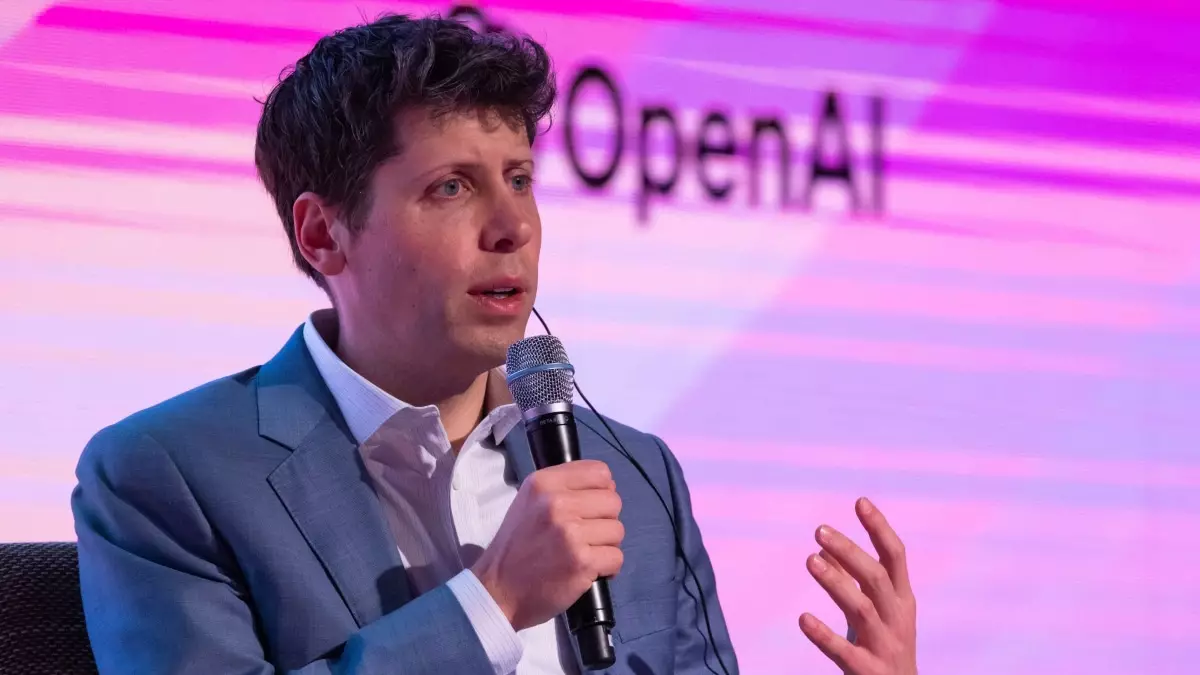In the tumultuous landscape of tech innovation and ethical considerations, few events evoke as much intrigue as the upcoming legal battle between Elon Musk and Sam Altman. Scheduled for March 16, this trial represents not just a conflict between two formidable billionaires but also an ideological standoff that could redefine the future of artificial intelligence. Musk, a visionary turned courtroom warrior, is challenging Altman’s ambitious plans to restructure OpenAI, a venture they both helped to establish in 2015.
Judge Yvonne Gonzalez Rogers has wasted no time in setting the stage for this high-stakes clash. In a bid to expedite proceedings, she recognizes the urgent necessity to bring clarity to the situation rather than allowing it to languish. The implications of this trial are immense, as it could have a lasting impact on OpenAI’s operational trajectory—especially given the rapid evolution in the AI sector.
OpenAI’s Troubling Transition
At the heart of Musk’s lawsuit is the assertion that OpenAI’s transition from a nonprofit to a for-profit structure betrays its founding ethics. As an original co-founder, Musk’s motivations stem from a genuine concern for the potential ramifications of prioritizing profits over humanity’s welfare. In an age where artificial intelligence is being embedded into almost every facet of society—from economic models to ethical dilemmas—this conflict encapsulates an essential dialogue about the moral responsibilities of tech giants.
Altman and OpenAI counter that Musk’s legal action may be more about personal grievances than any altruistic motives. They argue that Musk’s attempt to undermine their efforts is simply a reaction to his own failure to dominate the AI landscape. In the eyes of some, including critics from the center-left liberal sphere, Musk’s tactics echo a desperate effort to regain control over a narrative he can’t quite recapture.
Crumbling Benevolence or Strategic Shift?
The larger question here is not merely about the dynamics between Musk and Altman, but about the ethics of profit-driven AI development versus a truly benevolent approach. As Musk claims that OpenAI has deviated from its original charitable principles, the underlying concern remains: who ultimately governs the technology that is meant to advance humanity’s collective future? Critics worry that profit motives could overshadow the societal impact, sacrificing ethical considerations for immediate financial gain.
OpenAI’s evolution into a for-profit organization, particularly with significant investments from companies like Microsoft, raises eyebrows. Is this merely a practical response to the demands of an ever-competitive market, or does it reveal a troubling trend of prioritizing shareholder interests over societal good? Musk’s challenge comes wrapped in both personal and professional anxiety, as he too has launched his AI initiatives, albeit under the auspices of XAI, creating a complex tapestry of rivalry intertwined with genuine concern.
Funding Frictions and Future Directions
Adding another layer of tension is the recent revelation of OpenAI’s staggering $40 billion funding round, and the visible pressure to conclude this restructuring by the end of 2025. This timeline introduces an urgency that affects strategic decisions at the corporate level. OpenAI’s potential inability to meet this deadline carries risks—allowing for alternative investors or reducing SoftBank’s contributions—which further complicates the relationship between investment success and ethical obligations.
The framing of this battle is not just about Musk’s accusations against Altman; it’s emblematic of the fears surrounding AI’s trajectory and the consequences of unchecked capitalism. In a liberal society, where progress often walks the tightrope of ethical responsibility, safeguards must be reinforced to ensure technology serves humanity rather than enslaves it.
A Divided Tech Landscape
The upcoming trial could either solidify or further fracture the fragile ecosystem of AI development. As public attention swells, the debate amplifies about whether innovations should derive from ideals of communal benefit or financial imperatives. The outcome of this trial is more than just a courtroom skirmish; it may reflect the broader collective consciousness regarding the role and responsibilities of technology in everyday life.
The stakes have never been higher, and as court dates loom, both tech aficionados and casual observers will undoubtedly be watching closely. Will this be a triumph for Musk’s ideals or a testament to Altman’s vision? Herein lies not just a legal contest, but a reflection of our values in this rapidly evolving digital frontier.


Leave a Reply